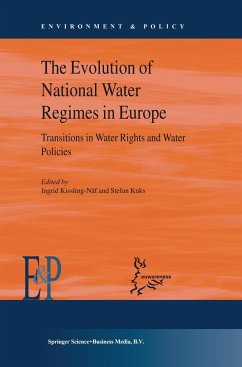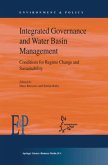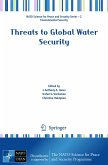All over the world countries struggle with water stress. Problems vary from water scarcity and a degrading water quality, to floods and a rising sea level due to climate change. The European Union adopted a Water Framework Directive to improve the sustainability of water management in its member states. Water management should be coordinated at the level of river basins as a whole. Interests of various user groups should be better represented. River basin visions should take into account the impact of all human activities on the status of the resource. Water legislation needs streamlining and more focus on its implementation. The European Union advocates regulating water prices by charging the costs of water services on the basis of full cost recovery and the polluter pays principle.
This book examines the development of water management in the Netherlands, Belgium, France, Spain, Italy and Switzerland. It is based on the European research project EUWARENESS. The authors apply a theoretical framework for the analysis of institutional regimes, water governance and property rights. The evolution of national water resource regimes is described over a period of almost 200 years (1800-2000). The long-term perspective enables the reader to see the conditions under which regime transformation and paradigm change are made possible. The book also includes a critical analysis of policy making by the European Union, and a comparative review and analysis of regime development in the six countries involved.
This book is followed by another volume published with Kluwer Academic Publishers on "Integrated Governance and Water Basin Management", edited by Hans Bressers and Stefan Kuks.
This book examines the development of water management in the Netherlands, Belgium, France, Spain, Italy and Switzerland. It is based on the European research project EUWARENESS. The authors apply a theoretical framework for the analysis of institutional regimes, water governance and property rights. The evolution of national water resource regimes is described over a period of almost 200 years (1800-2000). The long-term perspective enables the reader to see the conditions under which regime transformation and paradigm change are made possible. The book also includes a critical analysis of policy making by the European Union, and a comparative review and analysis of regime development in the six countries involved.
This book is followed by another volume published with Kluwer Academic Publishers on "Integrated Governance and Water Basin Management", edited by Hans Bressers and Stefan Kuks.








